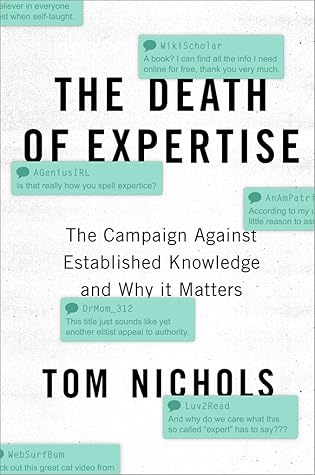scientists, when possible, run experiments over and over and then submit their results to other people in a process called “peer review.” This process—when it works—calls upon an expert’s colleagues (his or her peers) to act as well-intentioned but rigorous devil’s advocates. This usually takes place in a “double-blind” process, meaning that the researcher and the referees are not identified to each other, the better to prevent personal or institutional biases from influencing the review.
Welcome back. Just a moment while we sign you in to your Goodreads account.


